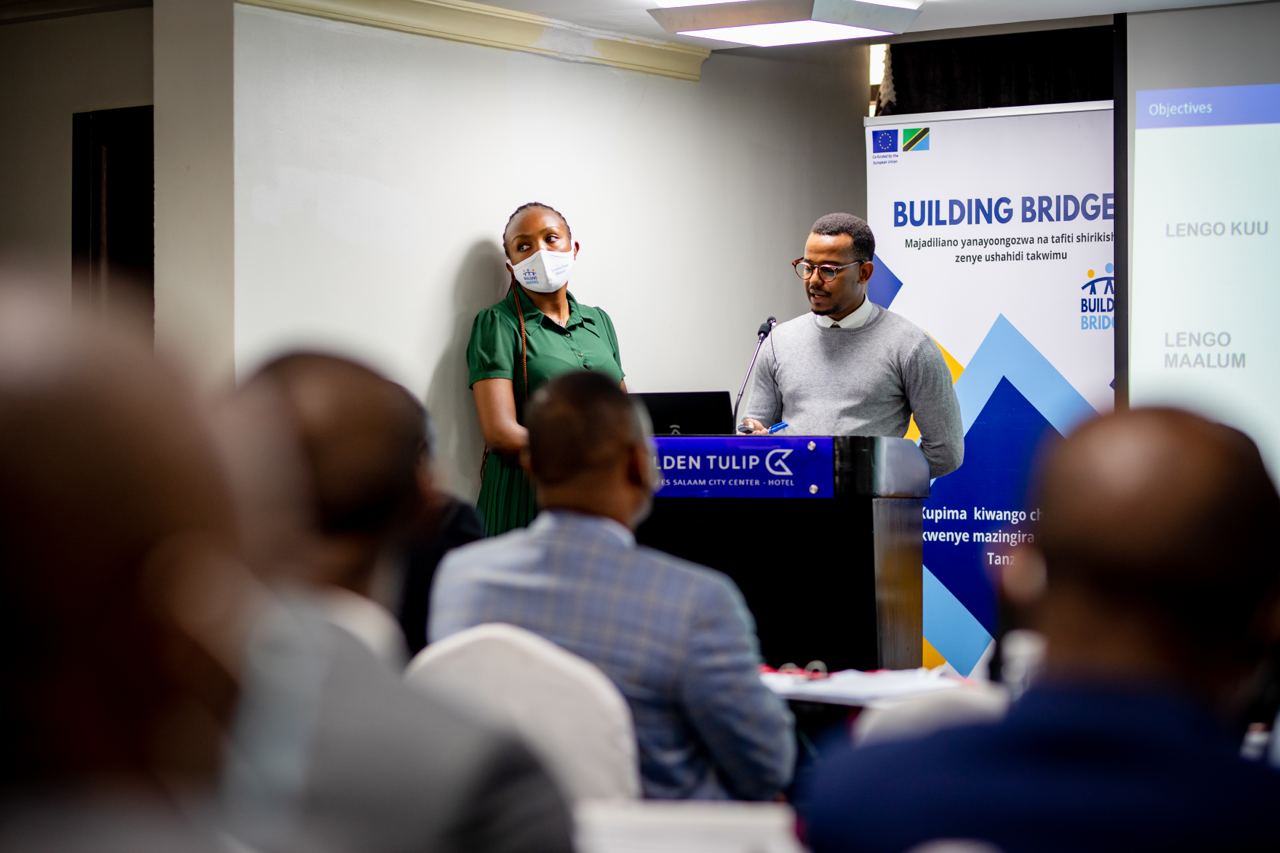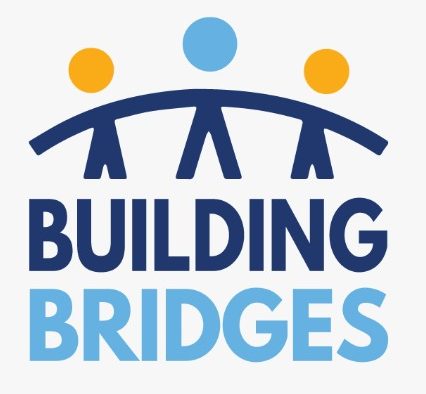EU BUILDING BRIDGES

The primary goals of the Building Bridges project were to enhance the business atmosphere, increase involvement of small to medium-sized enterprises and private sector organizations in the implementation of the FYDPP II, and contribute to their informed participation in constructive policy discussions regarding economic and fiscal governance. This aimed to lead to a more favourable business environment and a better-informed private sector.

DESCRIPTION
The project was contracted to Trias Tanzania and implemented by the Tanzania National Chamber of Commerce, Industry and Agriculture (TCCIA) in collaboration with 10 regional Chambers with support (facilitation) from Trias.
This project strengthened the capacity of 10 Chambers of Commerce in Tanzania (including the Nationa Chamber of Commerce) in doing research related to the business environment, cross-border trade and participation of SMEs in the second Five- Year Development plan two (FYDPII).
A digital data collection tool using tablets was developed and rolled out in 10 regions in order to collect digital data that was used as the basis for improved debate and policy dialogue at district, regional and national levels of the government.
More than 7000 SMEs were consulted in the course of the project. The staff of the Chambers and relevant government resource persons were trained in the development of the questionnaires, the use of digital applications, as well as data visualization and presentation skills.
KEY PLAYERS
European Union
Funder
Government Tanzania
Intermediary and observer
TRIAS
Lead applicant
TCCIA
Implementing partner

This project aimed to strengthen the capacity of 10 regional Chambers of Commerce in Tanzania in doing research related to the business environment, cross border trade and participation of Small and Medium-Sized Enterprises..
Research projects
Entrepreneurs
Business Councils
Policy briefs
CROSS BORDER TRADE
Download the full report
Download policy brief
Name of study:
Cross border trade; Trade related policies and regional integration
Date completed:
December 2020
Locations:
Mwanza, Arusha, Kigoma, Songwe, Mbeya, Mtwara
Number of people interviewed:
465 traders
An in-depth analysis of the opportunities and obstacles facing cross border trade (CBT) between Tanzania and its neighbouring countries and a look at the country’s comparative advantage and potential for expanding trade flows in the SADC, EAC and COMESA in line with the Second Five Year Plan 2016/17-2021/22 with a particular focus on the promotion of small and medium scale enterprises (SMEs) and participation in regional integration in eastern and southern Africa. The study addresses practical issues traders face when importing or exporting goods and services from neighbouring countries to propose realistic solutions to the obstacles.

SMEs IN THE FYDP II
Download the full report
Download policy brief
Name of study:
A study on participation of SMEs in the implementation of the Five Year Development Plan Two (FYDP II).
Date completed:
June 2022
Location:
Mwanza, Arusha, Dodoma,
Number of people interviewed:
401 SMEs
The study examines the opportunities and challenges of small and medium-sized enterprises participating in the Five Year Development Plan (FYDP II). The FYDP II centred on ‘nurturing industrialization for economic transformation and human development’ with a great emphasis on creating an enabling environment for private sector development. The study provides evidence of the extent to which the FYDPII interventions created opportunities or obstacles for SMEs. Such interventions are related to fostering economic growth and industrialization, human development, cross-border trade, regional integration and global trade. The study is based on the analysis of 7 cases from seven strategic value chains (tourism, fisheries, cotton, rice, fruits, grapes and sunflower) in three regions (Arusha, Dodoma and Mwanza).

LEVEL OF TRUST
Download the full report
Download policy brief
Name of study:
Level of Trust in Tanzania’s business environment 2021
Date completed:
May 2022
Locations:
Mwanza, Arusha, Dodoma, Dar es Salaam, Mbeya, Mara, Shinyanga, Kigoma, Songwe, Mtwara.
Number of people interviewed:
3283 SMEs
The study examines the opportunities and challenges of small and medium-sized enterprises participating in the Five Year Development Plan (FYDP II). The FYDP II centred on ‘nurturing industrialization for economic transformation and human development’ with a great emphasis on creating an enabling environment for private sector development. The study provides evidence of the extent to which the FYDPII interventions created opportunities or obstacles for SMEs. Such interventions are related to fostering economic growth and industrialization, human development, cross-border trade, regional integration and global trade. The study is based on the analysis of 7 cases from seven strategic value chains (tourism, fisheries, cotton, rice, fruits, grapes and sunflower) in three regions (Arusha, Dodoma and Mwanza).

Improving the level of trust in the business environment in Tanzania

About documentary
The documentary explores the intriguing topic of trust in Tanzania’s business environment, shedding light on the research process from conception to execution. The audience is taken on a journey, discovering the intricacies of how the research was formulated and how the data was collected. Through the use of compelling visualizations, the documentary effectively analyzes the results of the research, painting a vivid picture of the state of trust in Tanzania’s business community. The audience is left with a deep understanding of the challenges facing business professionals in Tanzania and the emerging recommendations from the research. Overall, the documentary is an engaging and informative exploration of a critical issue that affects SMEs in Tanzania.
EVIDENCE-BASED DIALOGUE
The results of each major study were shared and discussed in the regional business councils of all 10 regions in the Building Bridges program, and afterwards, the collated results were then presented at TCCIA’s national Public-Private Dialogue. Policy briefs were shared with several government ministries, including the Ministry of Finance, the Ministry of Industry, Trade and Investment, and the Prime Minister’s Office – Labour, Youth, Employment and Persons with Disabilities. The Business Registrations and Licensing Agency, The Bank of Tanzania, and The Tanzania Revenue Authority were also involved in the evidence-based dialogue process. The recommendations from the research were carefully considered, and the Tanzania Chamber of Commerce Industry and Agricultures was closely consulted during the budget preparation process for the financial year 2022/23. Several recommendations were implemented and taken up by some government institutions, as described in the project report.



Contact
Trias
P.O Box 12 005
Arusha, Tanzania
Phone
+255 27 254 5661
eastafrica@trias.ngo

BUILDING BRIDGES
